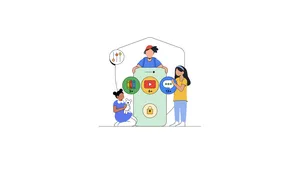Translate Community, and Sietske Poepjes, help add Frisian to Google Translate
Today, we’re speaking with Sietske Poepjes, a member of the Frisian community who recently helped to organize a Translate Community event. Thanks to Sietske and the community's support, we were able to get enough data to officially add Frisian to Google Translate. The interview gives an overview of what went into Sietske’s community effort and how you can get involved.
What’s your job and title?
I'm a provincial deputy on language and education in the province of Fryslân. Fryslân is one of the twelve provinces in The Netherlands. It’s the only province with an official language other than Dutch, namely: Frisian.
Why is it important to add the Frisian language to Google Translate?
Frisian is the second official language in the Netherlands and is the mother language of more than half of the population of the province of Fryslân. Most people in Fryslân are able to understand or speak the language, but not a lot of people are able to write it at a high level (only 15%). With most of our education taking place in Dutch, Google Translate can be used as a tool for those who can’t write the Frisian language sufficiently.
So you organized Frisian Google Translate Week last year -- what motivated you to organize the event?

To add Frisian to Google Translate, we knew we needed a lot of data. Since there wasn’t sufficient material available both in the Frisian and English language, Translate Community could help. To get everyone involved, the province of Fryslân decided to organise a central week in which everyone is asked to participate. The idea was that working together in the same week, we would motivate people to contribute even more. This has definitely paid out; thousands of people participated, resulting in nearly a million translated words!
How did you set up the event? Who did you work with?
As the province of Fryslân, we coordinated the event with educational and scientific organisations and libraries, and received lots of support. The organisations invited employees, members, students or other interested people to come along and translate with them on a certain day/time. This turned out to work really well. One example: the Frisian department of the University of Groningen (which is outside of Fryslân) organised a reunion with former students and teachers and together they translated thousands of words.
We also organised an opening session which was the official start of the entire week and invited school children to help open the festival with their own song. At this opening session an introduction to Google Translate presentation was given by a Google Netherlands representative.We provided hand-outs and made a training video on YouTube to guide people on how to navigate on Translate Community site and make contributions. We also created a commercial video (with famous Frisians), broadcast on the regional television “Omrop Fryslân”, which turned out to be very influential.
How did you motivate the participants?
We relied on social media. We created our own Facebook event for people to join and asked all of the organisations involved to use their own social media to share our messages and calls for everyone to contribute.
Participants could make a screenshot showing their number of contributions made, to share on Facebook. We gave the participant with the most contributions a Google Translate cake.
How did the Frisian week go? Any memorable moments?
The Frisian Google Translate Week became a huge success. A lot of Frisians participated, resulting in a whopping one million translated words at the end of the week. The total number of translations was revealed at a national festival for languages.
It was amazing to see the amount of publicity we gained and to see that so many people were interested in our event. It was even broadcast in the Dutch news at prime time.
What’s the impact of the event? What are people’s reactions?
We saw the need for Google Translate, as we received a lot of feedback and questions from people who wanted to know when Frisian would be available in Google Translate.
The most impressive thing of the whole Frisian Google Translate Week is the commitment of all Frisians (in and outside the province of Fryslân). So many people participated and everyone felt the need to join and start translating. The Frisian community worked together to achieve a goal.
Have you worked on any follow up efforts?
Yes! We have organized a validation session. In this session, we have reached Frisian experts and gathered in the local provincial library to work together on validating the translations. It worked out really well, again the sense of community was very strong.
And to thank everyone who participated in the Frisian Google Translate Week and the validation session, we organized a celebration party. It was a really nice party with a spectacular multilingual musical performance from the Frisian band ‘De Kast’. Their number-1 hit “De nije dei” (The new day) was performed with the lyrics in Dutch translated by Google Translate in the background. There were also secondary school pupils showing the use and work of Frisian in Google Translate to all guests.

We think it is very important to communicate about the value of Google Translate for the language, it improves the visibility of the language, and it offers speakers of the language a very helpful and easy-to-use digital tool. It shows the vitality of the language, which is especially important for small languages such as Frisian. Second, we think it is important to cooperate with the local organisations for a sense of community. And last but not least: we have made a nice event of it. It was great fun!
If you would like to help improve Google Translate and organize Translate Community events for your language, apply here.






